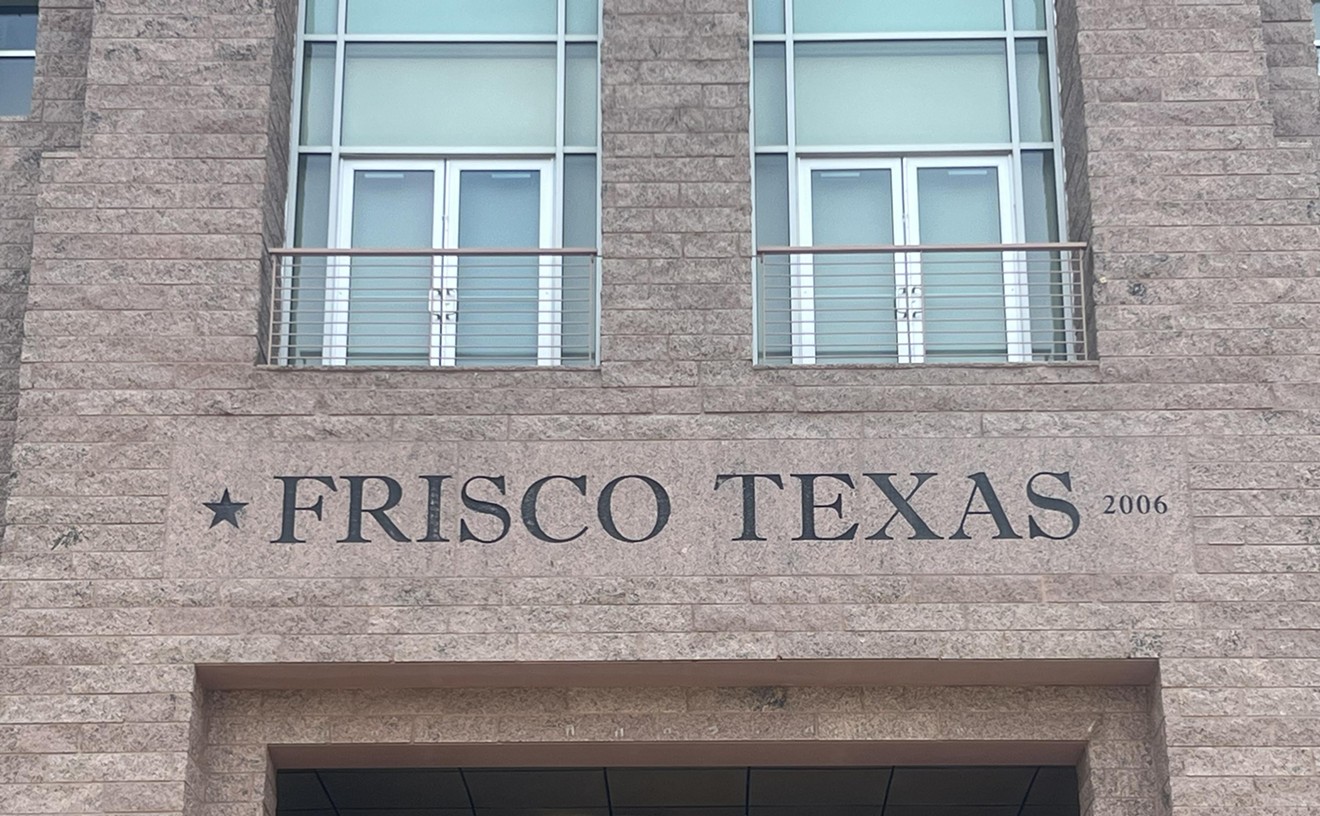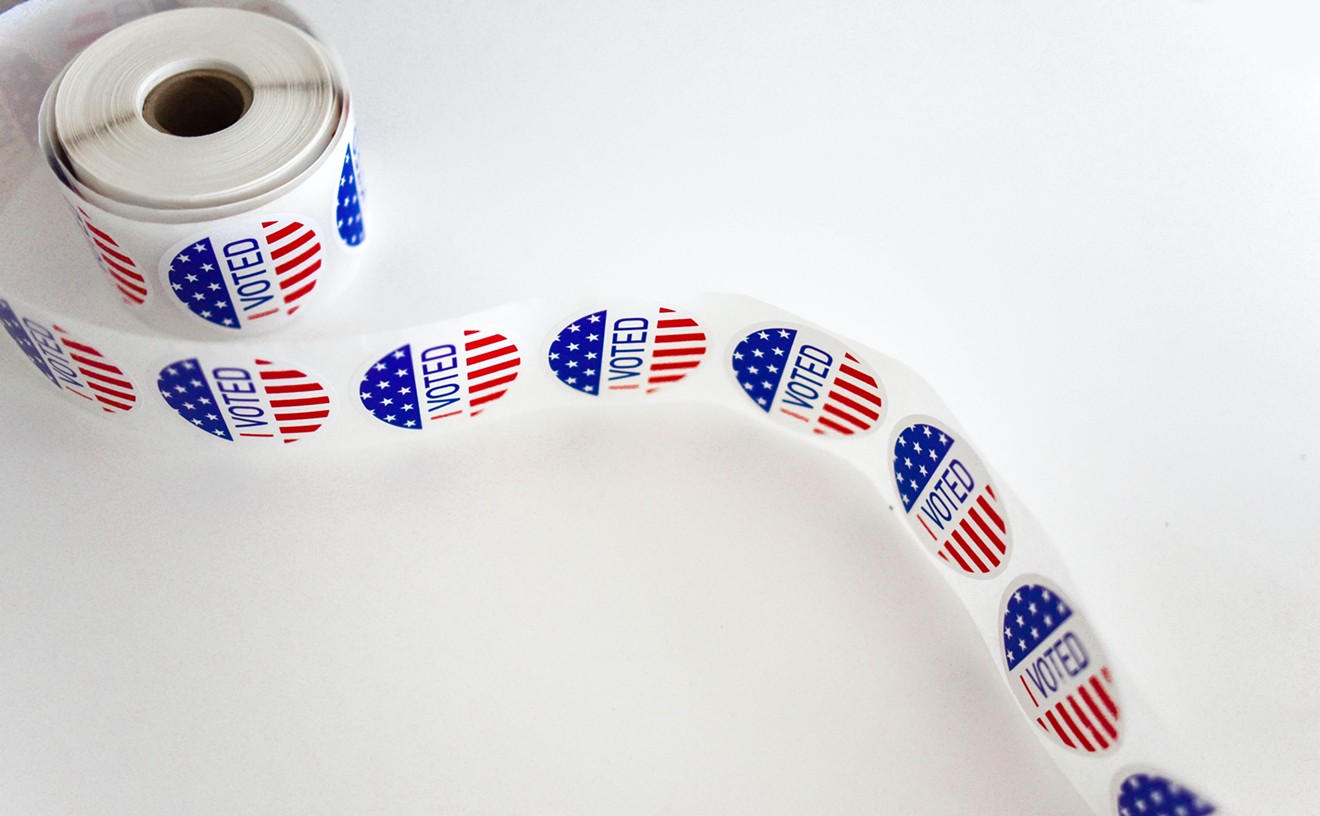On a lonely industrial road in West Dallas, Bobbie Patience stood her ground for two years. A dogged organizer for the American Postal Workers Union, Patience was often a fixture outside the chain-link fence of Pat Salmon and Sons, one of the nation's largest Postal Service contractors, waiting for truckers to finish their runs so she could buttonhole them and persuade them to vote union.
For Patience, a former IRS worker and Navy parachute packer, organizing truckers was no 9-to-5 job. In the wee hours of the morning while occasional gunshots popped in nearby neighborhoods, she bided her time waiting for late-shift truckers to return after traversing the Southwest. Managers at Dallas' Pat Salmon hub didn't make her life any easier. Several times, they called the police, claiming she was soliciting prostitution. At first the cops who drove up asked lots of questions but eventually figured out the game. "Oh, it's just you," they would say.
Patience wasn't the only Norma Rae protégé backing the APWU, a public employee union that only recently began organizing workers at the private contractors increasingly employed by the Postal Service. Kathy Herron, a four-year Pat Salmon driver who took up early-morning trucking to spend more time with a grandchild, was first to ask the APWU to step in. Sitting in a Luby's restaurant near the truck depot at lunchtime, she faulted the company for expensive health insurance, an inflexible 401(k) system and lack of sick and bereavement leave.
But Herron, 47, a short woman with a steely temperament in a male-dominated industry, cites one experience two years ago that convinced her the union was sorely needed. One morning on the loading dock, a heavy box fell on her foot and broke it. Other companies, she says, might have sent her home and found another driver, but not Salmon and Sons, where managers fret over the never-ending task of moving massive quantities of mail under strict time schedules.
So Herron drove her 10-hour-long mail haul to Prescott, Arkansas, despite her worsening injury. Later, a doctor cut off her shoe to treat her hugely swollen foot. Rather than quit over the matter, she chose to stay and fight for change. "I wasn't going to let them whup me," Herron says. "You get defeated all your life, and you don't want to give in."
On May 19, Patience's and Herron's efforts to organize Pat Salmon's Dallas hub, which serves 15 cities in Texas and Oklahoma and counts about 300 drivers, finally paid off. Votes cast in a September election--sealed for months while the company unsuccessfully contested the APWU's involvement in private-sector organizing--show the APWU won 88 percent of the vote in Dallas. In all, 212 employees voted yes, 30 voted no, and 32 votes were thrown out after the company challenged ballots of workers who had left or been fired.
The lopsided victory elates APWU officials eager to recruit new workers and reverse organized labor's decreasing share of the workforce. "It's an extraordinary achievement," says Frank Romero, national organizing director for the 360,000-member union composed mostly of clerks and other postal employees. "With the lack of benefits, [Pat Salmon workers] are basically being used and abused."
Romero wants the post office to draft a code of conduct for its contractors. Meanwhile, the fledgling Dallas unit joins new APWU locals at Pat Salmon's Memphis, Little Rock, Shreveport and Albuquerque depots, which together count about 900 of the company's 1,200 workers. (Teamsters organized the company's two Florida hubs, while Cincinnati and Atlanta remain non-union.)
Not all APWU members are thrilled about organizing private-sector postal truckers. They fear it will erode public-sector jobs. (Since the 1980s, the U.S. Postal Service has increasingly turned to privatization to head off deficits and stamp-price increases--and as a result, the APWU has shrunk.) In Dallas, the long-standing APWU local declined to officially support the Pat Salmon effort. National officials are more enthusiastic; they see potential in 2 million truckers, corporate direct-mail pre-sorters and maintenance workers. "They are postal workers without a contract," Romero says.
Officials at the family-run company, which fulfills more than 100 postal contracts in 26 states, deny allegations of mistreatment. During a previous union drive, the company released a statement saying it pays top wages and works "very hard to provide our employees with fair working conditions." But after losing fights to keep unions out, the company has resigned itself to the prospect and is currently negotiating a contract with the APWU. There's no word on a time line for talks.
"Do we like it, do we agree with it?" asks Jeff Boone, the company's general manager. "Probably no, but the workers have spoken." Boone denied that the overwhelming vote for the APWU in Dallas indicated dissatisfaction among employees. Rather, he believes workers simply wanted extra benefits.
Herron and other drivers disagree. As the lunch crowd drifted away at Luby's, she and other drivers aired numerous grievances. The lack of sick days, bereavement days and inflexibility with schedules all perturb drivers, as does their perception that rising health-care costs arrive suspiciously in time to negate employee raises.
At the top of the list is the company's mandatory health insurance policy, which workers say runs as high as $457 a month for a family with children, a high amount relative to other businesses. The drivers argue that despite postal service payments to the company of $2.15 an hour per worker for benefit costs, they still fork over top dollar for health care. "Ninety percent of the drivers feel they can get it at a cheaper rate," says Jerry Tiger, 58, a 14-year Pat Salmon veteran who hauls mail to and from Oklahoma City five days a week.
Despite their many complaints, the workers say they enjoy truck driving and take pride in delivering the mail on time. Stuck in her trailer during a snowstorm once, Herron says rather than leave and hunker down in a hotel, she stayed with her cab and went without food or water for 24 hours. "You protect your mail," she says.
Pat Salmon and Sons, named after the company's late founder and now run by his two sons (it began with one mail truck in 1946), hopes to address some of these concerns in the contract, Boone says. But he's adamant the company stays competitive to retain its postal contract. "It's our greatest concern," he says, whether union obligations will damage the company's ability to remain the lowest bidder.
There's one other factor. While public employees such as mail sorters and letter carriers cannot legally strike, the same doesn't apply for workers at government contractors. Should contract negotiations fail, Boone says he'll hire strike breakers to ensure mail is delivered on time. Although Patience admits she hasn't fully contemplated a strike, she says she will urge one if better benefits, especially sick days, aren't negotiated. "I believe it's going to take a strike," she says.
Workers like Herron stand behind her. "We need to be treated more like an equal rather than a dime-a-dozen truck driver," she says.











